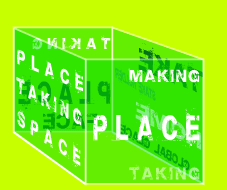Migration | Patterns of Movement
Secret Existences: In the Shadow of the Big City
A text by Katja Grote (2003)
It’s Sunday night, and the Warsaw train arrives at Ostbahnhof accompanied by the noise of squealing brakes. When the train finally comes to a halt, the first passengers begin to exit. Many have been traveling for more than nine hours. A few are alone, but most are in groups. There is little German to be heard. The majority are Polish men and women. Around 100,000 Poles commute regularly to Berlin. They arrive as tourists but what they want is work. Without permits, they work illegally. Most will stay for at least three or four weeks before returning.
Karol is 43 years old. He is married with three children. His family lives just outside Krakow. A trained car mechanic, Karol couldn’t find work at a garage, so he started driving trucks. Later he worked as a taxi driver. Despite working 12-hour shifts, he can barely support his family. Now that his daughter is at college and his wife is without work, getting by is especially hard. “1000 zloty a month is not enough for five people,” he says. But he’s not complaining. Two years ago, he sister found a job for him in Berlin, where she lives. Now he does home construction work—putting in tiles and flooring, framing windows and doors, painting and wallpapering walls. At 6 to 7 Euro an hour, he can make up to 3,000€ over six weeks—assuming he works 12 hours a day, 7 days a week, that is. He doesn’t take time off. And without his family he feels adrift, anyway. “My normal life is in Poland,” he says. “Here? This is not normal.” After 6 weeks of hard labor, Karol decides to visit his family for two weeks. The train ride is expensive, and it’s stressful.
Completre text here (in German)

